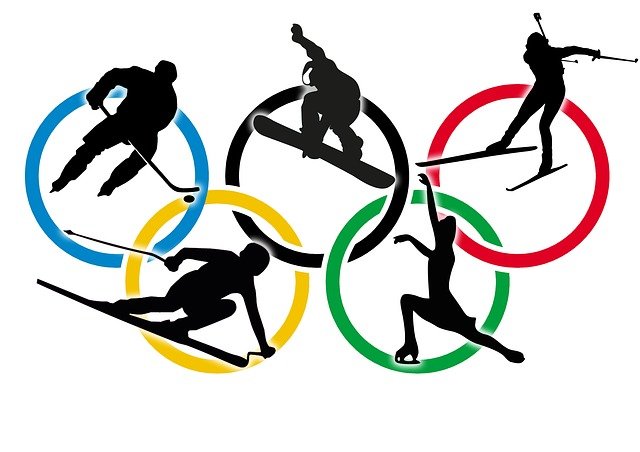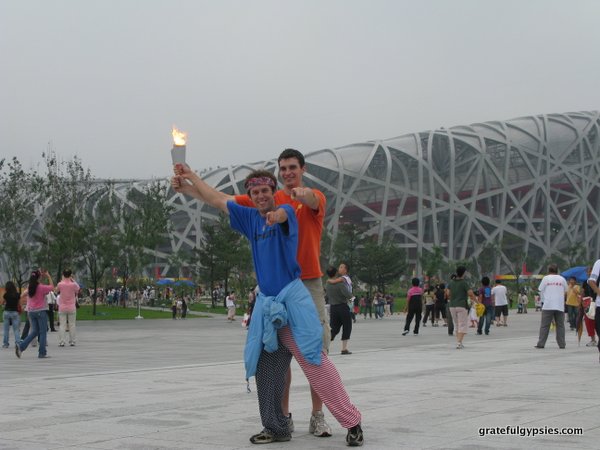Beijing Winter Olympics Posted by sasha on Feb 10, 2022 in Culture, Sports
The Winter Olympics have already started in Beijing (北京冬奥会已经开始了 běi jīng dōng ào huì yǐ jīng kāi shǐ le). I can’t believe that it’s now been 14 years since I first landed in Beijing for the Summer Olympics (夏季奥运会 xià jì ào yùn huì). It’s definitely different this time around, and not just because of the seasons. The ongoing pandemic (大流行 dà liú xíng) and China’s strict “zero policy” (清零政策 qīng líng zhèng cè) are making for a strange edition of the winter games. That’s not going to stop us from covering the 2022 Winter Olympics and teaching you some Chinese in the process. 加油!
What’s In a Name?
Reading that intro, you may have realized that the names for the Winter and Summer Olympics look a little different. While the Winter Olympics are officially called 冬季奥运会 (dōng jì ào yùn huì), it’s typically shortened to 冬奥会 (dōng ào huì). Similarly, the Summer Olympics can just be called 夏奥会 (xià ào huì). If you’ve been studying Chinese for some time, you’ve probably realized by now that many things have shortened names that are used colloquially.
Beijing Hosts Again
Beijing is the host city this year (北京是今年的主办城市 běi jīng shì jīn nián de zhǔ bàn chéng shì). Fun fact – Beijing is the first city to ever host both the summer and winter editions of the Olympics. This also marks the 3rd Olympics in a row in East Asia after 2018 in PyeongChang (平昌 píng chāng) and 2020 2021 in Tokyo (东京 dōng jīng). The Chinese capital won the right to host the 2022 games after beating Almaty (阿拉木图 Ālā mù tú) by four votes.
The motto for this year’s Winter Olympics is “Together for a shared future” (一起向未来 yī qǐ xiàng wèi lái). The emblem is called “winter dream” (冬梦 dōng mèng) – a multi-colored ribbon that looks like a figure skater and skier in the style of the Chinese character for winter. I know it sounds confusing, so just watch this 30-second video to see what they’re going for:
There are mascots for both the Winter Olympics and the Paralympics (残奥会 cán ào huì). Representing the ’22 games is Bing Dwen Dwen (冰墩墩 bīng dūn dūn) – a giant panda sporting a suit of ice, which is fitting since its name actually means “ice.” Meanwhile, Shuey Rhon Rhon (雪容融 xuě róng róng) is a Chinese lantern and has “snow” in its name. For the record, I’m not sure why their official English names are spelled so differently than the pinyin transliteration. Anyways, you can check out Bing Dwen Dwen’s intergalactic journey to the games in this funny video:
As far as the venues go, they are pretty spread out. Several events are taking place at the Olympic Green (奥林匹克公园 Ào lín pǐ kè gōng yuán) that was built for the 2008 games. This includes the National Aquatics Center (国家游泳中心 guó jiā yóu yǒng zhōng xīn), more commonly known as the Water Cube (水立方 shuǐ lì fāng) for curling.
The opening ceremony (开幕式 kāi mù shì) and closing ceremony (闭幕式 bì mù shì) are both happening at the National Stadium (国家体育场 guó jiā tǐ yù chǎng), also known as the Bird’s Nest (鸟巢 niǎo cháo). Here’s a picture of me there in 2008 just for fun:
The Capital Indoor Stadium (首都体育馆 shǒu dū tǐ yù guǎn) hosts the skating events, and on the other side of town, the Wukesong Arena (五棵松体育馆 wǔ kē sōng tǐ yù guǎn) hosts my personal favorite Winter Olympic sport – ice hockey. Meanwhile, events that require actual mountains and snow are being held outside of town in Yanqing District (延庆区 yán qìng qū) and Zhangjiakou (张家口 zhāng jiā kǒu), which is actually in neighboring Hebei province.
Winter Olympic Sports
There’s a lot going on at the 2022 Winter Olympics in Beijing. This year’s edition of the games has 109 different events over 15 different disciplines, which are listed in a table below with the Chinese names and pinyin:
biathlon
bobsled
cross-country skiing
curling
figure skating
freestyle skiing
ice hockey
luge
nordic combined
short track speed skating
skeleton
ski jumping
snowboarding
speed skating
冬季两项
雪车
越野滑雪
冰壶运动
花样滑冰
自由式滑雪
冰球
雪橇
北欧两项
短道速滑
钢架雪车
跳台滑雪
滑板滑雪
速度滑冰
dōng jì liǎng xiàng
xuě chē
yuè yě huá xuě
bīng hú yùn dòng
huā yàng huá bīng
zì yóu shì huá xuě
bīng qiú
xuě qiāo
běi’ōu liǎng xiàng
duǎn dào sù huá
gāng jià xuě chē
tiào tái huá xuě
huá bǎn huá xuě
sù dù huá bīng
Of course, the ultimate goal of every athlete is to make it on the podium (讲台 jiǎng tái). First place takes home a gold medal (金牌 jīn pái), which the runner up gets a silver medal (银牌 yín pái) and third place a bronze medal (铜牌 tóng pái). We’ll see which nation hoists the most gold medals by the time the games come to a close on February 20th.

Build vocabulary, practice pronunciation, and more with Transparent Language Online. Available anytime, anywhere, on any device.






Leave a comment: